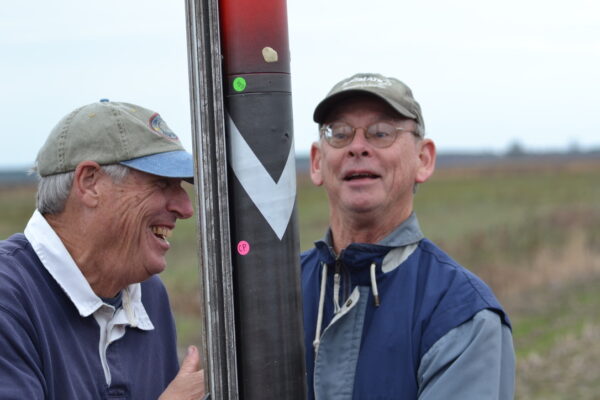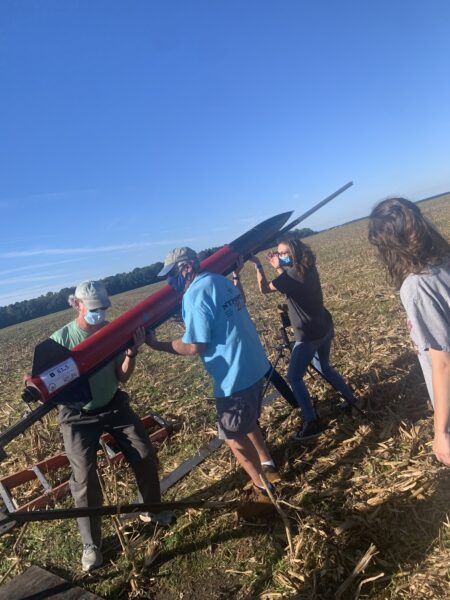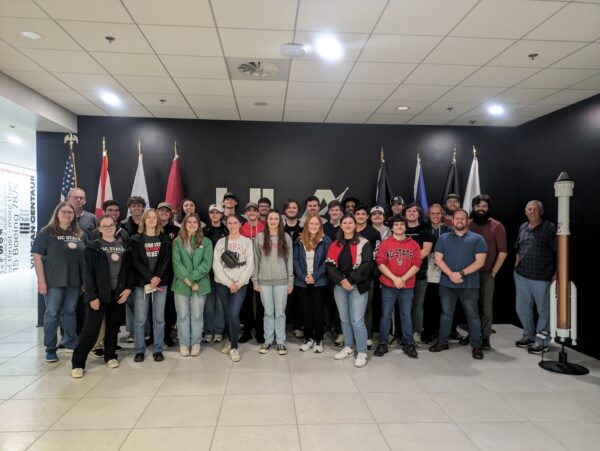 Alan Cochran Whitmore, Ph.D., passed away on August 26, 2024, at the age of 75 from a pulmonary embolism at his home in Carrboro, NC.
Alan Cochran Whitmore, Ph.D., passed away on August 26, 2024, at the age of 75 from a pulmonary embolism at his home in Carrboro, NC.
Whitmore, who served as a mentor to North Carolina State University’s High-Powered Rocketry Club (HPRC) for more than a decade, is remembered by students and faculty for his dedication, expertise, and passion for rocketry. His contributions to the Department of Mechanical and Aerospace Engineering (MAE) and the students he mentored have left a lasting legacy.
Whitmore’s journey into the world of rocketry began in the 1990s when he developed a deep interest in amateur high-powered rockets. His technical knowledge and hands-on experience in designing, building, and launching rockets made him a valuable resource for students. Over the years, Whitmore certified numerous club members in rocketry and taught them skills essential for building and launching high-powered rockets. His mentorship helped many students pursue careers in aerospace and related fields.
Born on April 5, 1949, in Wilmington, Delaware, Whitmore grew up in Kinston, NC, where he graduated from Kinston High School in 1967. He went on to earn both his bachelor’s degree in chemistry and Ph.D. in immunogenetics from UNC-Chapel Hill. Throughout his professional career, Whitmore worked at Duke University and UNC in the fields of microbiology and immunology, retiring in 2019 after decades of research and teaching. However, it was his role as a rocketry mentor at NC State that became one of his most celebrated contributions.
For more than a decade, Whitmore served as a mentor to the HPRC, providing technical guidance, safety instruction, and hands-on training to undergraduate students. His involvement with the club included traveling with students to competitions at NASA’s Marshall Space Flight Center in Huntsville, Ala., and attending local launches at Bayboro, NC. Whitmore’s presence at these events was a source of support and encouragement for the club members, many of whom credit him with helping them achieve their goals in rocketry.
 One of Whitmore’s unique contributions to the HPRC was teaching a class on manufacturing rocket motors, sharing his expertise on homemade rocket propellants. He placed a strong emphasis on safety and precision, ensuring that students understood the complexities of the materials they were working with. In addition to providing hands-on technical instruction, Whitmore played a key role in certifying students for personal rocketry certifications, a critical step for those pursuing advanced rocketry.
One of Whitmore’s unique contributions to the HPRC was teaching a class on manufacturing rocket motors, sharing his expertise on homemade rocket propellants. He placed a strong emphasis on safety and precision, ensuring that students understood the complexities of the materials they were working with. In addition to providing hands-on technical instruction, Whitmore played a key role in certifying students for personal rocketry certifications, a critical step for those pursuing advanced rocketry.
Whitmore’s involvement with the club also extended to career guidance. Many of his students went on to work for major aerospace organizations, including NASA, thanks in part to his mentorship and connections in the industry. His dedication to helping students succeed beyond the classroom was a hallmark of his time with the HPRC.
“Alan would travel to Huntsville with us each year,” said a student who worked with him, noting that he was always there to offer help and advice, and that his presence was invaluable.
In addition to his work with the HPRC, Whitmore was a member of the Tripoli Rocketry Association and served as chair of the Motor Testing Committee. He authored two editions of Performance Evaluation of Experimental Rocket Propellants in 2004 and 2007, which were widely used by hobbyists and professionals alike. His contributions to the field of rocketry were recognized within the rocketry community, and his expertise was sought after by those looking to advance their own knowledge of rocket propulsion.
Even after his retirement from his professional career in microbiology, Whitmore continued to be an active presence in the rocketry community. He remained a mentor to the HPRC and participated in rocketry events across the country, attending competitions and launches alongside students and fellow hobbyists.
Whitmore’s passing has left a significant void in the High-Powered Rocketry Club and the MAE department at NC State. His mentorship and dedication to the program played a pivotal role in shaping the club’s culture of collaboration, innovation, and safety. His legacy will continue through the many students he mentored and the careers he helped launch.
Whitmore is survived by his wife, Sarah “Sallie” Peoples Whitmore, along with his sister, brother, and extended family. He was preceded in death by his parents, John Crowder “Jack” Whitmore and Susie Cochran Whitmore. Although his loss is deeply felt by those who knew him, his impact on NC State’s rocketry community and the broader field of aerospace engineering will be remembered for years to come.
Whitmore’s contributions to the High-Powered Rocketry Club and the students of NC State are a testament to his dedication to education, mentorship, and the pursuit of excellence in rocketry. His legacy lives on in the many careers he helped shape and the countless students who benefited from his knowledge and guidance.